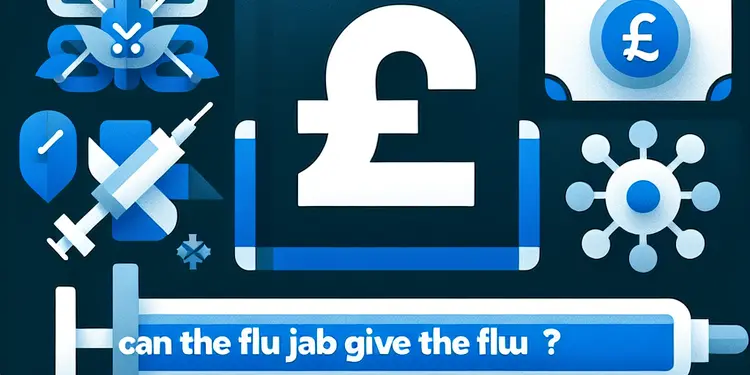
Find Help
More Items From Ergsy search
-

Can the flu jab give me the flu?
Relevance: 100%
-

What is the winter flu jab?
Relevance: 100%
-
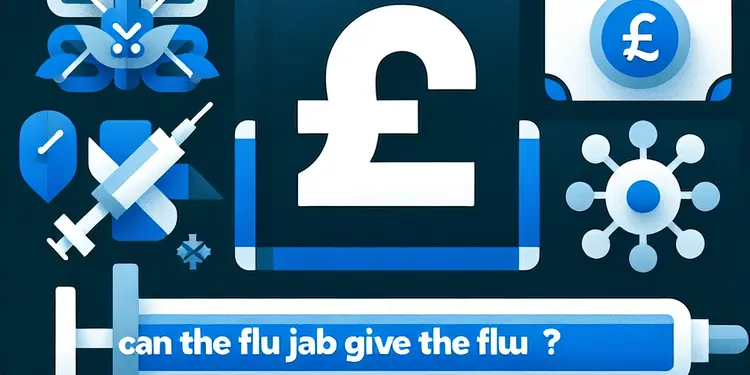
Can the flu jab give you the flu?
Relevance: 98%
-

Is the winter flu jab effective against all flu strains?
Relevance: 97%
-

Is the flu jab necessary for healthy individuals?
Relevance: 95%
-

How does the winter flu jab work?
Relevance: 93%
-

Who should get the winter flu jab?
Relevance: 93%
-

When is the best time to get the flu jab?
Relevance: 93%
-

Are there any side effects of the winter flu jab?
Relevance: 92%
-

Should I get the winter flu jab if I am otherwise healthy?
Relevance: 90%
-

When is the best time to get the winter flu jab?
Relevance: 90%
-

Will getting the flu jab protect me against COVID-19?
Relevance: 89%
-

Does the flu jab have any side effects?
Relevance: 88%
-

How long does it take for the flu jab to become effective?
Relevance: 87%
-

How long does protection from the flu jab last?
Relevance: 87%
-
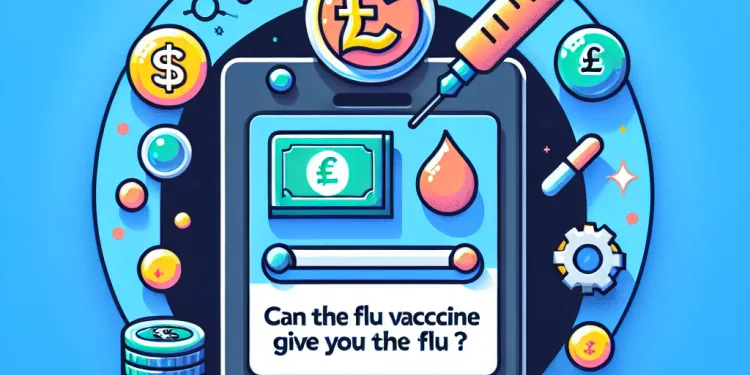
Can the flu vaccine give me the flu?
Relevance: 71%
-

Can the flu vaccine give you the flu?
Relevance: 69%
-

Where can I get the flu vaccine?
Relevance: 69%
-

Just the flu? | NHS
Relevance: 66%
-

Flu can be fatal
Relevance: 66%
-

What is Super Flu?
Relevance: 66%
-

Is the Super Flu contagious?
Relevance: 66%
-

What are the symptoms of flu ?
Relevance: 65%
-

Symptoms of flu (influenza)
Relevance: 65%
-
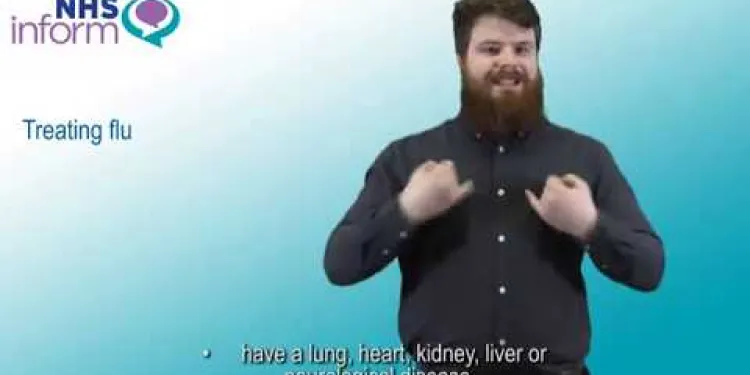
Treating flu (influenza)
Relevance: 65%
-

How effective is the flu vaccine?
Relevance: 63%
-

Is the flu vaccine free for everyone in the UK?
Relevance: 63%
-

How is Super Flu diagnosed?
Relevance: 63%
-

What causes Super Flu?
Relevance: 62%
-
Does the flu vaccine protect against COVID-19?
Relevance: 62%
-

What are the symptoms of Super Flu?
Relevance: 62%
-

What are the symptoms of H3N2 flu?
Relevance: 62%
-

What is the H3N2 flu strain?
Relevance: 62%
-

Who should get the flu vaccine in the UK?
Relevance: 61%
-

Can Super Flu be prevented by vaccines?
Relevance: 61%
-

Is flu season going to be bad in 2026?
Relevance: 61%
-

Flu vaccinations for people with a learning disability
Relevance: 61%
-

Understanding Seasonal Flu: Prevention and Treatment
Relevance: 61%
-

Is Super Flu a new strain of virus?
Relevance: 61%
-
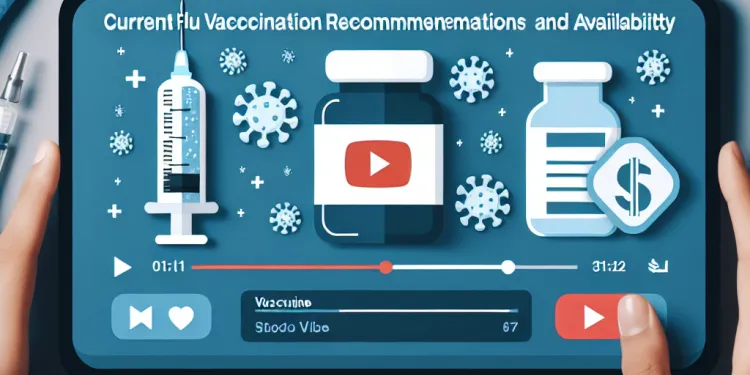
Current Flu Vaccination Recommendations and Availability
Relevance: 61%
Introduction
The flu jab, also known as the flu vaccine, is an important measure used to protect individuals and communities from the influenza virus. Every year, millions of people in the UK receive the flu jab, particularly those in high-risk groups such as the elderly, young children, and individuals with certain medical conditions. However, a common concern or misconception persists: can the flu jab actually give you the flu?
Understanding the Flu Jab
The flu vaccine works by stimulating the body's immune system to recognize and fight off the influenza virus. In the UK, the vaccines used are usually inactivated vaccines, which means they contain dead virus particles that cannot cause infection. Alternatively, the nasal spray vaccine given to children contains live attenuated (weakened) viruses. However, these are also modified in such a way that they cannot cause illness in healthy individuals.
Can the Flu Jab Cause Flu Symptoms?
It is a myth that receiving a flu jab can give you the flu. The inactivated viruses in the injected vaccines are not capable of causing the illness. In children, the live attenuated vaccine used in nasal sprays contains weakened viruses that are designed not to replicate efficiently at the higher temperatures found in the human body. Therefore, they are unlikely to cause symptoms of the flu in healthy people.
However, some individuals might experience mild side effects after getting the flu jab. These side effects may include a slight temperature, fatigue, and muscle aches, but these are not the same as having the flu. Such reactions typically result from the body building protection against the virus and are usually short-lived, subsiding within a day or two.
Effectiveness of the Vaccine
The flu jab is designed to protect against the most common and virulent strains of the influenza virus. It is important to note that, while the flu jab significantly reduces the risk of catching the flu, it is not 100% effective. This is because flu strains vary from year to year, and the vaccine must be reformulated annually to match circulating strains as closely as possible.
Conclusion
In conclusion, the misconception that the flu jab can cause the flu is unfounded. The vaccine is a safe, effective way to reduce the risk of influenza. Any side effects typically indicate that the body is developing immunity, rather than catching the flu. Receiving the flu jab not only protects individuals but also helps safeguard vulnerable populations by reducing the spread of the virus.
Frequently Asked Questions
Can the flu jab give you the flu?
No, the flu jab cannot give you the flu. The vaccine contains inactivated viruses or virus components that cannot cause illness.
Why do some people feel unwell after the flu jab?
Some people may experience mild side effects such as soreness, slight fever, or aches, but these are not the flu and typically resolve quickly.
What types of flu vaccines are available?
There are several types of flu vaccines, including inactivated influenza vaccines (IIV), live attenuated influenza vaccines (LAIV), and recombinant influenza vaccines (RIV).
Are the viruses in the flu vaccine alive?
In most flu vaccines, the viruses are inactivated (killed) or are just parts of the virus, so they cannot cause the flu.
How long does it take for the flu vaccine to become effective?
It usually takes about two weeks after vaccination for antibodies to develop in the body and provide protection against the flu.
Can I get the flu from a live attenuated influenza vaccine (LAIV)?
The live attenuated influenza vaccine contains weakened viruses, which cannot cause the flu illness in healthy individuals.
What should I do if I feel ill after getting the flu vaccine?
If you feel mild symptoms like soreness or a low-grade fever, they generally resolve without treatment. If you have concerns, contact your healthcare provider.
Is it common to have side effects from the flu vaccine?
Some people may experience mild side effects such as soreness at the injection site, headache, or fatigue, but serious side effects are rare.
Does having the flu vaccine reduce the severity of flu if I catch it?
Yes, individuals who receive the flu vaccine and still catch the flu often experience milder symptoms and a reduced risk of complications.
Can children get the flu from the flu nasal spray?
The nasal spray flu vaccine contains weakened viruses that cannot cause the flu, though children may experience mild side effects like a runny nose.
Who should avoid getting the flu vaccine?
People with severe allergies to vaccine components or a history of Guillain-Barré syndrome should consult a doctor before receiving the flu vaccine.
Can the flu vaccine cause allergic reactions?
Serious allergic reactions are rare, but anyone with known severe allergies to vaccine ingredients should discuss options with their doctor.
Why is the flu vaccine recommended every year?
Flu viruses evolve rapidly, and the vaccine is updated annually to provide protection against the most current strains.
Can pregnant women safely get the flu vaccine?
Yes, the flu vaccine is recommended for pregnant women as it protects both the mother and the baby from influenza.
Why do some people still get the flu after having the vaccine?
It's possible, though less likely, to catch a flu strain not covered by the vaccine or catch flu shortly before immunity builds.
Can the flu shot protect against all strains of flu?
The flu vaccine is designed to protect against the most common strains for the season, but it may not cover every strain.
Is it possible to get the flu right before the vaccine becomes effective?
Yes, it's possible to contract the flu during the two-week period it takes for the vaccine's protection to develop.
How effective is the flu vaccine in preventing illness?
Vaccine effectiveness varies by season and person but can reduce the risk of flu illness, hospitalization, and complications.
If I have a cold, can I still get the flu shot?
Mild illnesses don't typically contraindicate vaccination, but consult with a healthcare provider if experiencing moderate or severe illness.
Can the flu vaccine protect me from COVID-19?
The flu vaccine does not protect against COVID-19, but it helps maintain your health and prevent flu-related complications during the pandemic.
Useful Links
This website offers general information and is not a substitute for professional advice.
Always seek guidance from qualified professionals.
If you have any medical concerns or need urgent help, contact a healthcare professional or emergency services immediately.
Some of this content was generated with AI assistance. We’ve done our best to keep it accurate, helpful, and human-friendly.
- Ergsy carfully checks the information in the videos we provide here.
- Videos shown by Youtube after a video has completed, have NOT been reviewed by ERGSY.
- To view, click the arrow in centre of video.
- Most of the videos you find here will have subtitles and/or closed captions available.
- You may need to turn these on, and choose your preferred language.
- Go to the video you'd like to watch.
- If closed captions (CC) are available, settings will be visible on the bottom right of the video player.
- To turn on Captions, click settings .
- To turn off Captions, click settings again.
More Items From Ergsy search
-

Can the flu jab give me the flu?
Relevance: 100%
-

What is the winter flu jab?
Relevance: 100%
-

Can the flu jab give you the flu?
Relevance: 98%
-

Is the winter flu jab effective against all flu strains?
Relevance: 97%
-

Is the flu jab necessary for healthy individuals?
Relevance: 95%
-

How does the winter flu jab work?
Relevance: 93%
-

Who should get the winter flu jab?
Relevance: 93%
-

When is the best time to get the flu jab?
Relevance: 93%
-

Are there any side effects of the winter flu jab?
Relevance: 92%
-

Should I get the winter flu jab if I am otherwise healthy?
Relevance: 90%
-

When is the best time to get the winter flu jab?
Relevance: 90%
-

Will getting the flu jab protect me against COVID-19?
Relevance: 89%
-

Does the flu jab have any side effects?
Relevance: 88%
-

How long does it take for the flu jab to become effective?
Relevance: 87%
-

How long does protection from the flu jab last?
Relevance: 87%
-

Can the flu vaccine give me the flu?
Relevance: 71%
-

Can the flu vaccine give you the flu?
Relevance: 69%
-

Where can I get the flu vaccine?
Relevance: 69%
-

Just the flu? | NHS
Relevance: 66%
-

Flu can be fatal
Relevance: 66%
-

What is Super Flu?
Relevance: 66%
-

Is the Super Flu contagious?
Relevance: 66%
-

What are the symptoms of flu ?
Relevance: 65%
-

Symptoms of flu (influenza)
Relevance: 65%
-

Treating flu (influenza)
Relevance: 65%
-

How effective is the flu vaccine?
Relevance: 63%
-

Is the flu vaccine free for everyone in the UK?
Relevance: 63%
-

How is Super Flu diagnosed?
Relevance: 63%
-

What causes Super Flu?
Relevance: 62%
-
Does the flu vaccine protect against COVID-19?
Relevance: 62%
-

What are the symptoms of Super Flu?
Relevance: 62%
-

What are the symptoms of H3N2 flu?
Relevance: 62%
-

What is the H3N2 flu strain?
Relevance: 62%
-

Who should get the flu vaccine in the UK?
Relevance: 61%
-

Can Super Flu be prevented by vaccines?
Relevance: 61%
-

Is flu season going to be bad in 2026?
Relevance: 61%
-

Flu vaccinations for people with a learning disability
Relevance: 61%
-

Understanding Seasonal Flu: Prevention and Treatment
Relevance: 61%
-

Is Super Flu a new strain of virus?
Relevance: 61%
-

Current Flu Vaccination Recommendations and Availability
Relevance: 61%


